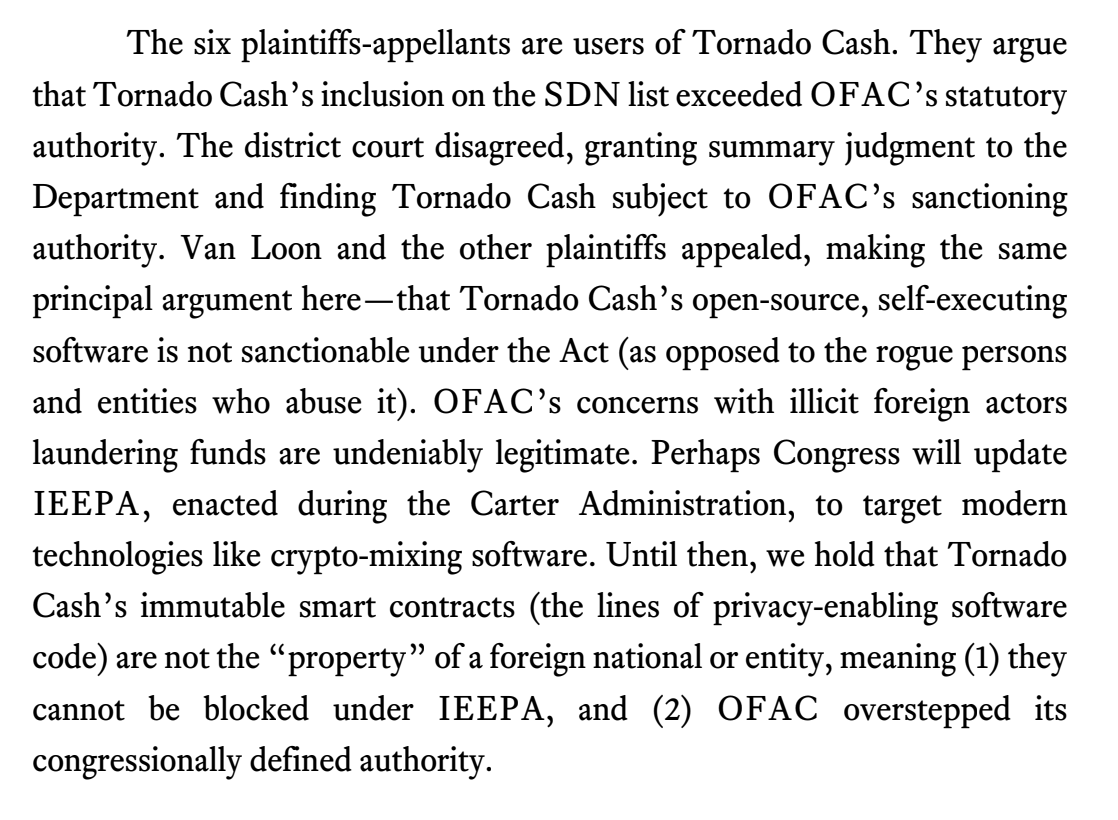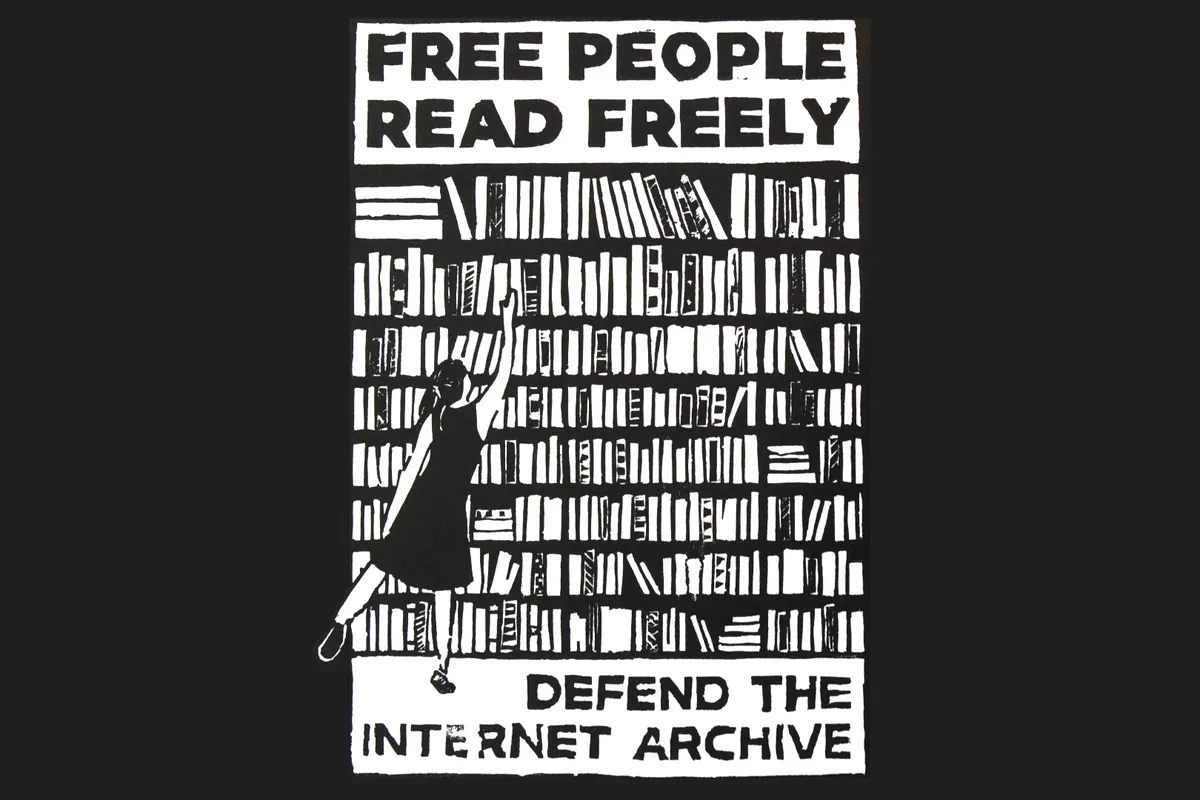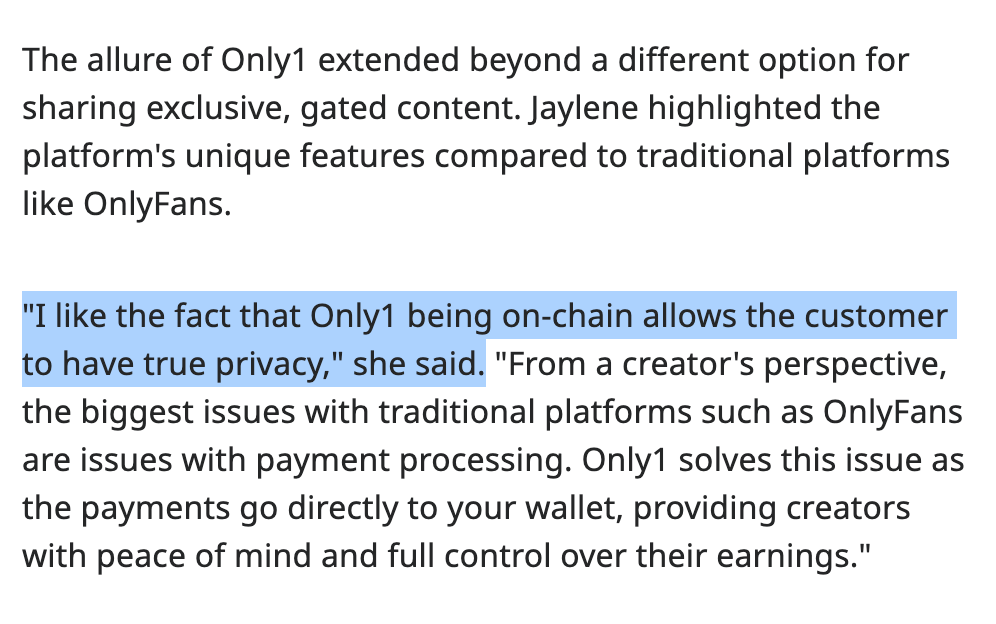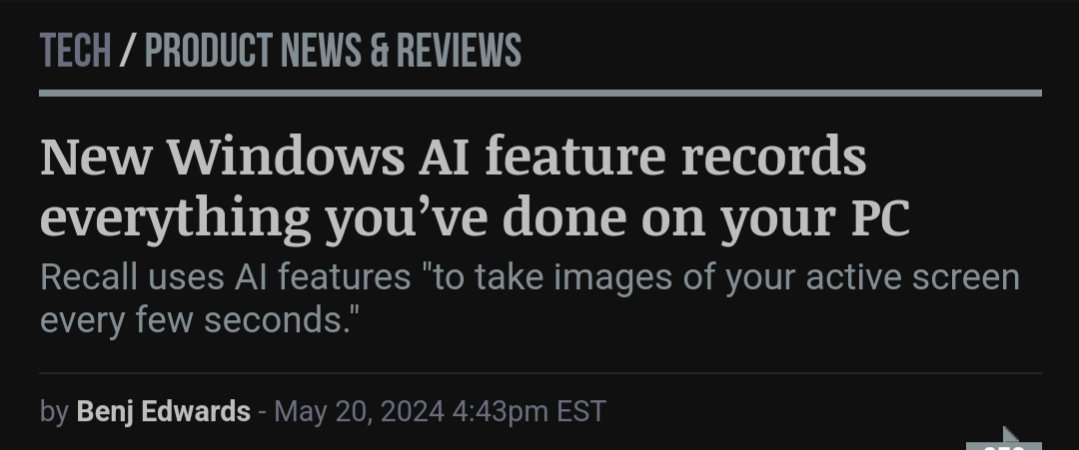EFF and a coalition of privacy defenders have filed a lawsuit today asking a federal court to block Elon Musk's Department of Government Efficiency (DOGE) from accessing the private information of millions of Americans that is stored by the Office of Personnel Management (OPM), and to delete any data that has been collected or removed from databases thus far.
Activity tagged "privacy"
The Fifth Circuit has just opined that the smart contracts that comprise the Tornado Cash cryptocurrency tumbler are "not property because they are not capable of being owned", and thus cannot be sanctioned by OFAC.
Please do not record your abortions on the blockchain
I must once again urge you: please do not record your abortions on the blockchain.
There are a lot of very worried people right now, fearful of an impending regime that may well crack down on things like reproductive care, gender-affirming care, or the ability for immigrants to even continue to remain in the US. Some have suggested people get familiar with cryptocurrencies in the event they might have to circumvent an authoritarian state.
I’ve said it before and I’ll say it again: in very bad situations, bad solutions can sometimes still be better than nothing. I make no secret of my views on the cryptocurrency industry, but I am the last to judge a person for using whatever means they have available to them to take care of themselves and others.
But please remember that most popular cryptocurrencies use public ledgers, where every transaction is visible to anyone who cares to look (no warrant required), where true anonymity is extremely challenging, and where tracing technology is getting only more sophisticated. Popular on-ramps like Coinbase and Gemini and other exchanges require customers to provide similar kinds of identification as banks, linking your future transactions to your real-life identity. (And many of these companies have thrown themselves wholeheartedly behind Trump, by the way, despite their “anti-authoritarian” claims).
There are cryptocurrencies that are more anonymous than the bitcoins and ethereums of the world (privacycoins like Monero and Zcash for example), though there are still attempts to trace these types of tokens and you have to be knowledgeable and very cautious about how you use them so as not to inadvertently reveal your identity.
If you’re in a bad situation, do whatever it is you need to do. I’m certainly not going to judge you. But please be very cautious, and be highly skeptical of anyone who presents cryptocurrency as a magic solution to authoritarianism.
Further reading: “Abuse and harassment on the blockchain”, “Anonymous cryptocurrency wallets are not so simple”
Big publishers think libraries are the enemy
There’s people who are really angry about a lot of tech stuff who disagree with each other about everything, including whether or not they really even have a problem. But all of their problems start with the fact that there’s a lot of commercial surveillance. So these people might disagree about everything else, but they will agree that their problem could be solved if we could do something about commercial surveillance.
So if you think Mark Zuckerberg made grampy into a QAnon, or if you think Insta made your teenager anorexic, or if you think that TikTok is convincing millennials to quote Osama bin Laden, right? Or if you think that it’s ugly that red state attorneys general are following teenagers into out-of-state abortion clinics, or that Google reverse warrants reveal the identity of everyone in a black lives matter demonstration or for that matter, the January 6th riots, or if you are worried about deep fake porn, or if you’re worried that people of color are having the surveillance data captured about them mobilized to discriminate against them in employment and financial products, right? All of these different things all start with cutting off the supply of surveillance data.– Cory Doctorow
Privacy, human rights, and Tornado Cash
"it's all stored locally" is not a panacea for these alarming privacy-invading products!
what exactly is stored locally? what data is extracted from that local data and sent to the company's servers? is that local data being backed somewhere?
what additional risks are now being posed to people who share devices, whose devices might be accessed by others or compromised, or who might not realize these tools are running? what is the risk that the company might later change its decision on local storage?
hi hello i see it's time for our semi-regular reminder that your browser's incognito mode does not protect you from surveillance!

![The immutable smart contracts at issue in this appeal are not property because they are not capable of being owned. More than one thousand volunteers participated in a “trusted setup ceremony” to “irrevocably remov[e] the option for anyone to update, remove, or otherwise control those lines of code.” And as a result, no one can “exclude” anyone from using the Tornado Cash pool smart contracts. In fact, because these immutable smart contracts are unchangeable and unremovable, they remain available for anyone to use and “the targeted North Korean wrongdoers are not actually blocked from retrieving their assets,” even under the sanctions regime. Simply put, regardless of OFAC’s designation of Tornado Cash, the immutable](https://storage.mollywhite.net/micro/5c9f39635b98489b176d_Screenshot-2024-11-26-at-7.01.20---PM.png)



